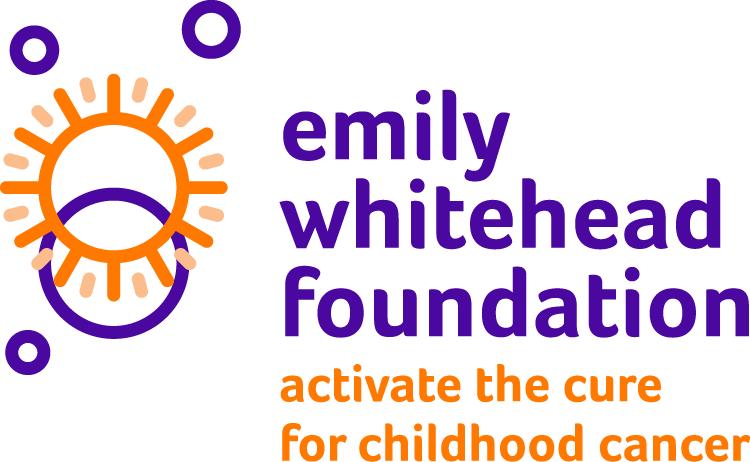Reese Pascarella
At the age of five, Reese Pascarella was diagnosed with Acute Lymphoblastic Leukemia (ALL). She was considered standard risk with a 90% chance of recovery after treatment. However, Reese did not respond well to standard treatment and remained MRD + through interim maintenance. Knowing they could not remain on standard protocol and wanting to avoid a bone marrow transplant (BMT), her parents turned to CAR-T therapy which put Reese in remission! She then participated in the humanized CAR-T trial at Children’s Hospital of Philadelphia (CHOP) before receiving an additional 18 months of maintenance chemotherapy. Reese is now three years cancer-free since her first CAR-T treatment in November 2021!
In their own words, Reese’s parents share the story of her treatment journey and the road to CAR T-cell therapy.
Just before her sixth birthday, Reese was diagnosed with Acute Lymphoblastic Leukemia (ALL). She was considered standard risk with a 90% chance of recovery after treatment. By day eight, there was no leukemia left in her blood. It was an optimistic start to a long journey ahead.
After the first phase of treatment, testing revealed that Reese was not in remission. She was immediately bumped up to high risk. Reese began another phase of treatment which required us to be at the hospital five days a week and involved heavy doses of intense chemotherapy.
Halfway through her second round of treatment, her lab results were down but still showed leukemia in her body. We were hopeful that by the end of this phase of treatment the cancer would be completely gone. Unfortunately, she still did not reach remission.
We were given two options: bone marrow transplant (BMT) or CAR-T therapy. Our hospital, Cohen’s Children Medical Center, had never done CAR-T before. We had an amazing new physician who completed her residency at Children’s Hospital of Philadelphia (CHOP) when Emily Whitehead received her initial infusion. She told us about the Whiteheads’ journey and the hope of CAR-T.
Because Reese had positive genetics, Dr. Stephen P. Hunger and Dr. Stephan Grupp encouraged us to try a third phase of chemotherapy to see if it would get Reese to reach remission before trying CAR-T. By the end of her third phase of chemotherapy, Reese wasn’t much better off than after her second phase. Her body is resistant to chemotherapy and flushes it out of her system.
In November 2021, Reese received FDA-approved Kymirah and finally reached remission. However, just like chemotherapy, CAR-T did not stick to Reese. Her doctors were insisting that Reese receive a BMT, but we just couldn’t go through with it. We reached out to CHOP and enrolled Reese in the humanized CAR-T trial.
In May 2022, we traveled from our home to Philadelphia so Reese could enter the clinical trial and receive her huCAR-T cells. Her B-cells returned, but the medicine had stayed in her body a little longer. She received a second dose in August 2022 with the same results.
Due to delays in the clinical trial, it had almost been a year since Reese first reached remission. Our leukemia specialist gave us three options: BMT, undergo maintenance chemotherapy or watch and wait. Chemotherapy seemed like the middle of the road option, so we opted for Reese to try 18 months of maintenance chemotherapy.
Reese completed treatment in April 2024 and is now three years cancer-free since receiving her first CAR-T treatment in November 2021. Today, she is an incredibly strong nine-year-old who loves spending time with her older brother and younger sister and listening to Taylor Swift. Reese is a talented competitive dancer, and she never stopped dancing throughout her treatment journey. She is also an amazing artist and an excellent writer, often writing and illustrating her own graphic novels.
We were blessed that CAR-T therapy saved Reese from experiencing the harsh side effects of standard treatment. Immunotherapy needs to be the way of the future, so no child has to undergo intense chemotherapy. We are grateful for the work the Foundation is doing to help make advanced therapies more accessible to all patients.
We receive messages from patients and families around the world with experiences similar to Reese’s family. We do whatever we can to be a resource for these families to help them get enrolled in a clinical trial or find a treatment center where they can access CAR T-cell therapy or other advanced therapies.
To help us in our mission to give patients around the world the opportunity to Activate the Cure, Get Involved or Donate now.
Recent News
Upcoming events
Gulf to Goat
Together we can do more. We urge you to join us in activating the cure and making a contribution on November 28 for Giving Tuesday.TCS New York City Marathon 2025
The Emily Whitehead Foundation is an Official Charity Partner for the 2025 TCS New York City Marathon!2025 Philadelphia Marathon
Join Team EWF at the 2025 Philadelphia Marathon! 📅 Event Dates: November 22-23, 2025📍 Location: Philadelphia, PA The Emily Whitehead...© 2014-2025 Emily Whitehead Foundation - Activate the Cure® for Childhood Cancer | All Rights Reserved
